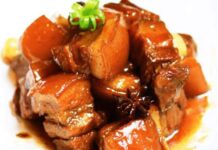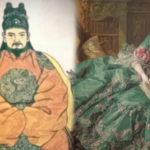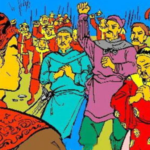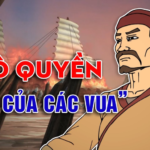The Emperor Chooses a Wife
When King Duy Tan turned 16, the court considered the matter of choosing a consort, even though the king was not ready. He once said to Minister Huynh Con: “The fate of the nation is more important, the matter of choosing a consort can wait. The longer we can delay, the better.”
Queen Nguyen Thi Dinh knew about this and advised King Duy Tan accordingly. As a dutiful son, the king reluctantly agreed to follow his mother’s wishes. Portraits of 20 beautiful and graceful young girls were presented for the king to choose.
The king chose Miss Mai Thi Vang, the daughter of Mr. Mai Khac Don, his teacher. Some sources say that the king made this decision to repay his teacher’s kindness. Others say that the king had feelings for Miss Mai Thi Vang. According to “History of Hue Citadel,” among the presented portraits, the king noticed two but chose Miss Vang because she dressed simply and modestly, which he liked.
On the 26th day of the 12th month in the year of At Mao (January 30, 1916), the coronation ceremony was held solemnly at the Le Temple, and Miss Mai Thi Vang was appointed as the First Giai Phi.
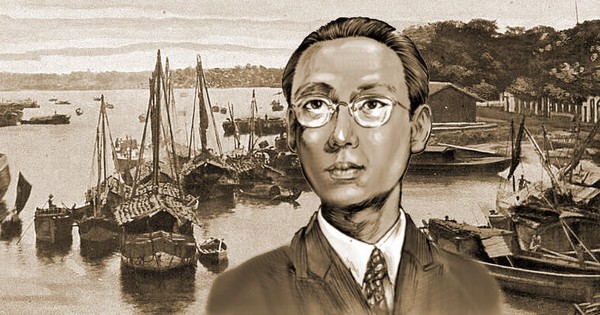
The Beloved Young Woman by the Emperor
Although Miss Vang was chosen, Ho Thi Chi was the one caught the king’s attention. Nun Dieu Khong (whose nickname was Ho Thi Hanh) recounted the love affair between her sister and King Duy Tan in the memoir “King Duy Tan and the Ho Dac Trung Family.” According to the memoir, they met in the summer of 1914 in Cua Tung (Quang Tri), and then “I saw the king’s palace carriages coming to my house with a pair of earrings and a pair of gold bracelets for my sister. My parents kneeled down to receive the gifts. That was the king’s proposal to my sister. My sister also thanked and showed her gratitude to the king.”
According to the book “Memoirs of a County Princess,” around 1913, in order to introduce the young king to various leisure activities, the French built a villa called “Thua Luong” in Cua Tung for the king to rest and swim in the sea during the summer. Minister Ho Dac Trung was one of the high-ranking officials who followed the king. He brought along his eldest daughter, Ho Thi Chi (born in 1902), a beautiful and talented young woman who excelled in Chinese characters and spoke fluent French, which caught the king’s attention. Although they developed feelings for each other, both sides remained respectful and did not cross the boundaries set by royal protocol.
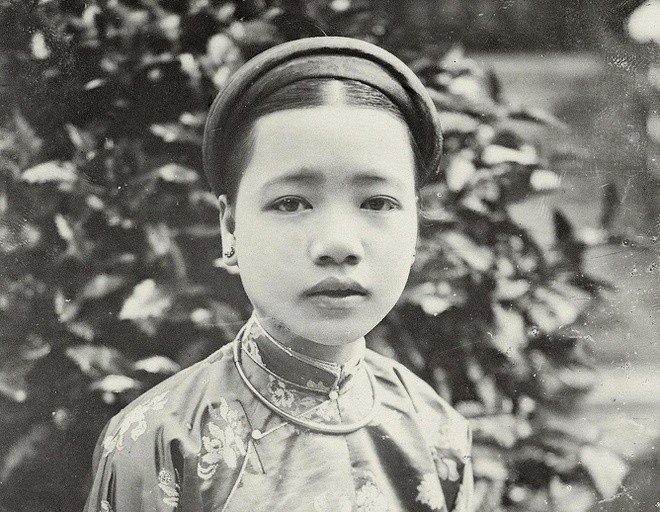
Surprisingly, dumped by the Emperor
Ho Thi Chi was initially invited by the queen to the palace to meet and was given a pair of gold bracelets. She also received training in royal protocol. Her family received a notification of the wedding date.
However, everything suddenly changed when the king decided to call off the wedding. The reason for this decision was known only to King Duy Tan himself. Based on the memoir of Nun Dieu Khong, one day in December 1915, Ho’s father asked Chi to return the gold bracelets and earrings to the king, stating that the king wanted to break off the engagement. He said:
“Encourage your daughter and marry her off to someone else so that she doesn’t feel sad. You should understand that I called off the engagement because I care about your family. That is why I have to end this relationship, even though I have loved her for the past two years.”
A week later, the royal wedding was transferred to the house of Mr. Mai’s clan, and on January 30, 1916, the coronation ceremony was solemnly held at the Lê Temple, as previously announced.

The Sad Ending of a Fair Lady
In her memoir, Nun Dieu Khong recorded that after the unsuccessful uprising, King Duy Tan was interrogated by the French about breaking off the engagement with Ho Thi Chi. The king explained that he was worried about her family having many children and feared that they would encounter difficulties. Furthermore, his allies also advised him to maintain a distance from her family in order to ensure the secrecy of their activities.
As for Ho Thi Chi, although their fate did not align, she decided not to marry anyone else. However, her life took another unfortunate turn. When Khai Dinh ascended the throne, he expressed his desire to marry Chi. This was not because Khai Dinh loved her or sought a genuine union, but rather he was known for being a “pro-French” ruler and only wanted someone who could support him in meetings with French officials.
Unable to refuse the difficult decision made by the king and to protect her family, Ho Thi Chi agreed to enter the palace. She was appointed as the “First Giai Am Phi” by Khai Dinh. However, her life in the palace was filled with coldness, loneliness, and resentment. She became depressed and eventually went insane, passing away in 1982 at a monastery.














